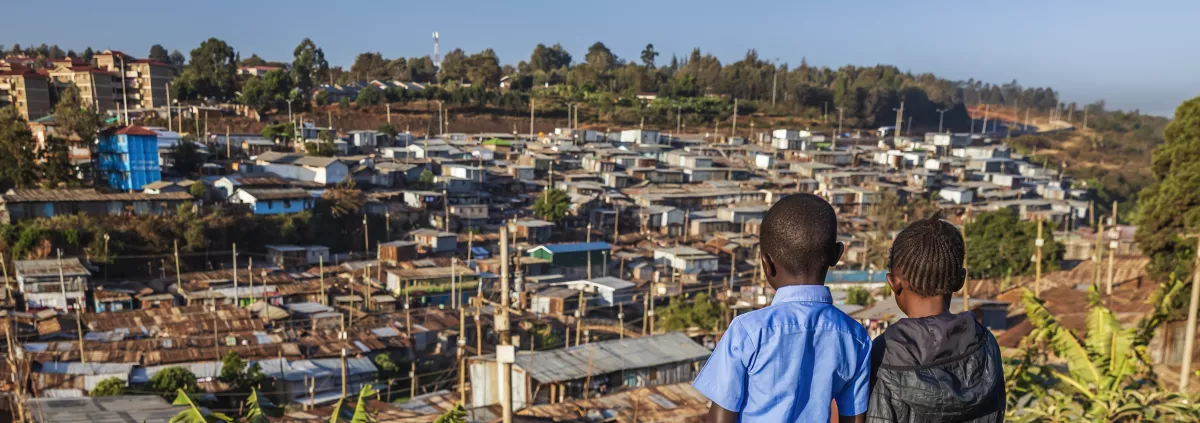Start of the event:
18:30 Nairobi, 16:30 Berlin, 10:30 Bogotá, 12:30 Brasília, 17:30 Amman, 19:30 Tbilisi, 23:30 Peking
Language of the event: English, Arabic, Spanish, Portuguese
Urban Poverty and Living Conditions: Limiting COVID- 19 Impacts in Densely Populated Backyard Rental Areas
In the frame of the Connective Cities virtual week, virtual events on Economic Response, Housing & Education will take place on Wednesday, November 25th. We cordially invite you to participate in our session on Urban Poverty and Living Conditions: Limiting COVID- 19 Impacts in Densely Populated Backyard Rental Areas.
COVID-19 has required an increase in the focus of service delivery in densely populated residential areas. In many Sub-Saharan African cities, the crisis's impact is acutely felt in dense residential occupation areas. One typical residential typology is backyard rental, where those with access to land and tenure provide basic, affordable housing for rental. In all large Sub-Saharan African cities, backyard rental/tenement rental/room rental is one of the most pervasive shelter provision forms. This is generally based around small scale landlords with the title over land constructing a basic shelter with spaces for rent. In countries with poorly developed housing markets, this is often the most pervasive form of accommodation provision. Not only does it provide a level of tenure security and often access to essential services, but it is also among the most affordable housing markets in operation. This market is often driven by women landlords and is also a significant accommodation provider to single women, children, and women-headed households. This market faces substantial challenges through COVID-19, yet it is often outside the reach of formal policy and COVID-19 economic rescue packages.
The session will provide an opportunity for identified city government officials and other key stakeholders from Spain, South Africa and Zambia to engage each other on the impact of COVID-19 on densely populated residential areas of informal landlordism, how municipal governance has been affected in these areas, and responses implemented since COVID-19. This will result in the development of concrete strategies for managing COVID-19 impacts in such areas.
The discussion will focus on the following three thematic areas:
- Disseminating educational/digital materials through landlord and tenant networks
- Exploring impacts of social distancing
- COVID-19 prevention measures rollout
- Information regarding landlord and tenant relationships to limit defaults and evictions
- Defining strategies to improve access to water and sanitation to reduce proximity
We are looking forward to your participation!
Note: For a quality use of the conference tool please download the Google Chrome Browser.
Speakers
Jorge Rodriguez Nieto, Partner CEO, Innovation, Barcelona, Spain
Danny Chibinda, Director of Housing and Social Services, Lusaka City Council, Zambia
Justice Matarutse, Program Manager, Durban City Council, South Africa
David Gardner, International Urban Development Consultant, South Africa
Moderation: Vani Moodley




